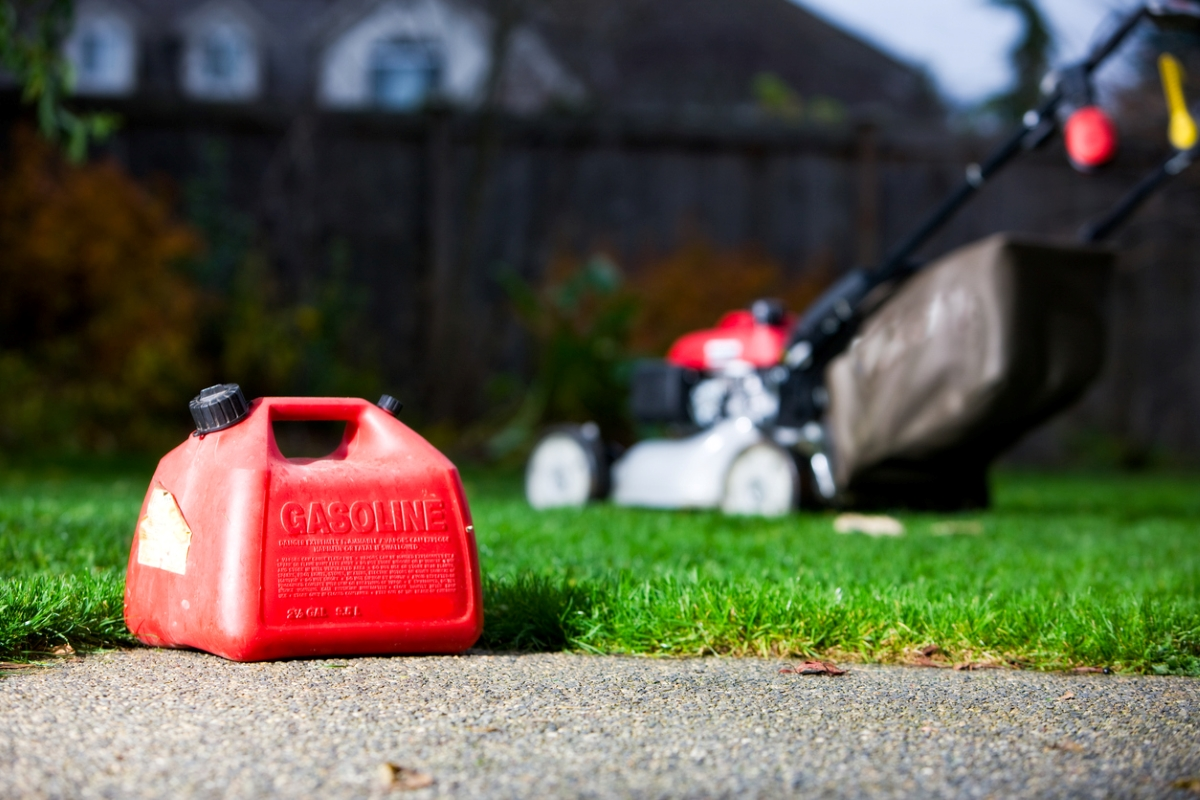Old gasoline is a common household issue, especially for those who store fuel for lawnmowers, snowblowers, or other small-engine equipment. Over time, gasoline degrades and loses its effectiveness, potentially damaging engines or causing malfunctions. Disposing of old gasoline, however, isn’t as simple as dumping it down the drain or tossing it in the trash—doing so is both dangerous and illegal.
If you’re wondering how to get rid of old gasoline safely and responsibly, this guide will walk you through the proper steps for disposal, recycling, and even reusing old fuel when possible.
Why Old Gasoline is a Problem
Over time, gasoline can break down due to exposure to air, moisture, and heat, causing it to lose its volatility and effectiveness as fuel. Old gasoline can gum up engines, clog fuel lines, or even cause serious damage to your equipment. Here’s why old gasoline is problematic:
- Degradation: Gasoline begins to degrade after about 30 days. It loses its combustible properties and can leave behind varnish-like residues that clog fuel systems.
- Water Contamination: Over time, water can accumulate in the fuel, particularly in areas with high humidity. Water contamination reduces gasoline’s effectiveness and can lead to corrosion in engines.
- Foul Odor: Old gasoline often emits a sour, pungent odor, a sign that it has gone bad and should not be used.
Given the potential damage it can cause, getting rid of old gasoline properly is essential for both your safety and environmental protection.
How to Get Rid of Old Gasoline Safely
1. Determine If the Gasoline is Still Usable
Before you dispose of the gasoline, it’s important to assess whether it is truly “old” and unusable. Gasoline that has been stored for less than a year may still be salvageable with some careful treatment.
- Smell and Color Test: Fresh gasoline has a distinct odor and clear, light color. If your gasoline has a foul odor or looks darker than normal, it’s likely degraded and should not be used in vehicles or machinery.
- Mix with Fresh Gasoline: If the gasoline is only slightly old (a few months), you may be able to mix it with fresh gasoline at a ratio of 1:1 or 1:2 (old gas to new gas) and use it in lawnmowers or other small-engine equipment. However, do not attempt this with vehicles, as it can cause engine performance issues.
If the gasoline is too old to reuse, you’ll need to dispose of it properly.
2. Locate a Hazardous Waste Disposal Facility
Old gasoline is considered hazardous waste, meaning it must be disposed of at an appropriate facility. Many cities and municipalities have hazardous waste disposal centers that accept gasoline and other flammable materials.
- Step 1: Contact your local waste management or environmental services department to locate the nearest hazardous waste disposal site. They will provide information on hours of operation and whether there are any specific rules for gasoline disposal.
- Step 2: Transport the gasoline safely to the disposal site. Use a sturdy, approved gasoline container that seals tightly to prevent spills. Avoid transporting large amounts in the trunk of your car to minimize fire risk in case of an accident.
Proper disposal ensures that gasoline is handled safely and does not contaminate the environment.
3. Attend a Household Hazardous Waste Collection Event
Many cities offer household hazardous waste collection events, where residents can drop off items like paint, oil, and gasoline for safe disposal. These events are usually held periodically throughout the year and provide a free or low-cost way to get rid of hazardous materials.
- Check for Local Events: Visit your city’s website or call your local environmental services to find out when the next hazardous waste collection event will take place.
- Prepare for the Event: Store the gasoline in an approved container and label it clearly before bringing it to the event. Follow any specific guidelines provided by your city for drop-off procedures.
These events make it convenient for homeowners to dispose of gasoline without the hassle of driving to a waste facility on a separate day.
4. Contact a Local Auto Shop or Mechanic
Some auto repair shops or mechanics may accept old gasoline for disposal or recycling, particularly if they regularly handle vehicle fluids. It’s best to call ahead and ask if they offer this service, as not all shops are equipped to handle hazardous materials.
- Step 1: Call local auto shops or gas stations to inquire if they accept old gasoline for disposal.
- Step 2: If they do accept it, transport the gasoline in a sealed container to the location and ask about any associated fees for disposal.
Auto shops can often recycle gasoline, as they deal with automotive fluids on a regular basis and have the necessary disposal infrastructure in place.
How to Store Old Gasoline for Disposal
While you’re waiting to dispose of your old gasoline, it’s important to store it safely to prevent accidents or contamination. Gasoline is highly flammable, and improper storage can lead to fire hazards or health risks. Here are some tips for safe storage:
- Use Approved Containers: Store gasoline in containers specifically designed for fuel storage, such as those made of HDPE plastic and labeled for gasoline use. These containers should be equipped with a spout and a safety cap to prevent spills.
- Keep Away from Heat: Store gasoline in a cool, dry location, away from direct sunlight or heat sources. Excessive heat can increase the risk of combustion.
- Ventilation: Ensure that the storage area is well-ventilated to reduce the buildup of gasoline vapors, which can ignite easily.
- Label the Container: Label the container clearly with “old gasoline” to avoid confusion and ensure that it’s handled properly during disposal.
How NOT to Get Rid of Old Gasoline
1. Don’t Pour It Down the Drain
One of the worst things you can do is pour old gasoline down the drain, sink, or toilet. Gasoline is highly toxic and can contaminate the water supply, harm local wildlife, and damage your plumbing system. Never pour gasoline down any household drain.
2. Don’t Dispose of It in Regular Trash
Gasoline should never be thrown in the trash, even if it’s in a sealed container. It can leak and cause fires in the trash or landfill, creating a serious hazard. Dispose of gasoline only at approved hazardous waste facilities.
3. Don’t Burn It
Burning old gasoline in a fire pit, barrel, or other open flame is extremely dangerous and illegal in many areas. Gasoline burns rapidly and unpredictably, leading to potential explosions or uncontrolled fires.
Recycling Old Gasoline
In some cases, old gasoline can be recycled or re-refined, meaning it is cleaned and treated to remove impurities, making it usable again. Some facilities, including hazardous waste centers or recycling companies, offer services to recycle old fuel.
- Step 1: Contact your local recycling center or hazardous waste facility to see if they offer gasoline recycling services.
- Step 2: Transport the gasoline to the recycling facility, following the same precautions for safe storage and handling.
Recycling gasoline is an environmentally responsible way to repurpose old fuel, keeping it out of landfills and waterways.
FAQs About Getting Rid of Old Gasoline
1. How long does gasoline last before it goes bad?
Ans – Gasoline begins to degrade after about 30 days and is typically unusable after 6 to 12 months. Adding fuel stabilizers can extend the life of gasoline for up to 2 years.
2. Can I mix old gasoline with new gasoline and use it?
Ans – In some cases, slightly old gasoline can be mixed with fresh gasoline in small engines like lawnmowers. However, mixing degraded gasoline with new fuel for use in vehicles is not recommended, as it may cause engine problems.
3. Where can I dispose of old gasoline near me?
Ans – Check with your local hazardous waste disposal center, recycling facility, or auto repair shop. Many municipalities also host hazardous waste collection events where residents can safely dispose of old gasoline.
4. Is old gasoline hazardous?
Ans – Yes, old gasoline is considered hazardous due to its flammability and potential to contaminate soil and water. It should always be handled carefully and disposed of at a proper facility.
5. What should I do if I accidentally spilled old gasoline?
Ans – If you spill gasoline, immediately cover the area with absorbent material like kitty litter or sawdust. Once the liquid is absorbed, place the material in a sealed container and take it to a hazardous waste facility.
6. Can I store old gasoline indefinitely?
Ans – Gasoline should never be stored indefinitely. If you can’t use it or treat it with a fuel stabilizer, it’s best to dispose of it within a year to prevent safety risks and degradation.
Conclusion
Disposing of old gasoline safely and responsibly is critical for protecting your home, health, and the environment. Whether through hazardous waste disposal centers, recycling facilities, or household hazardous waste events, you have several options for getting rid of old gasoline without putting yourself or others at risk.
Remember, gasoline is a hazardous substance that must be handled with care, so always follow local regulations and disposal procedures. By doing so, you’ll ensure that old gasoline is removed properly and without harm to the environment.



